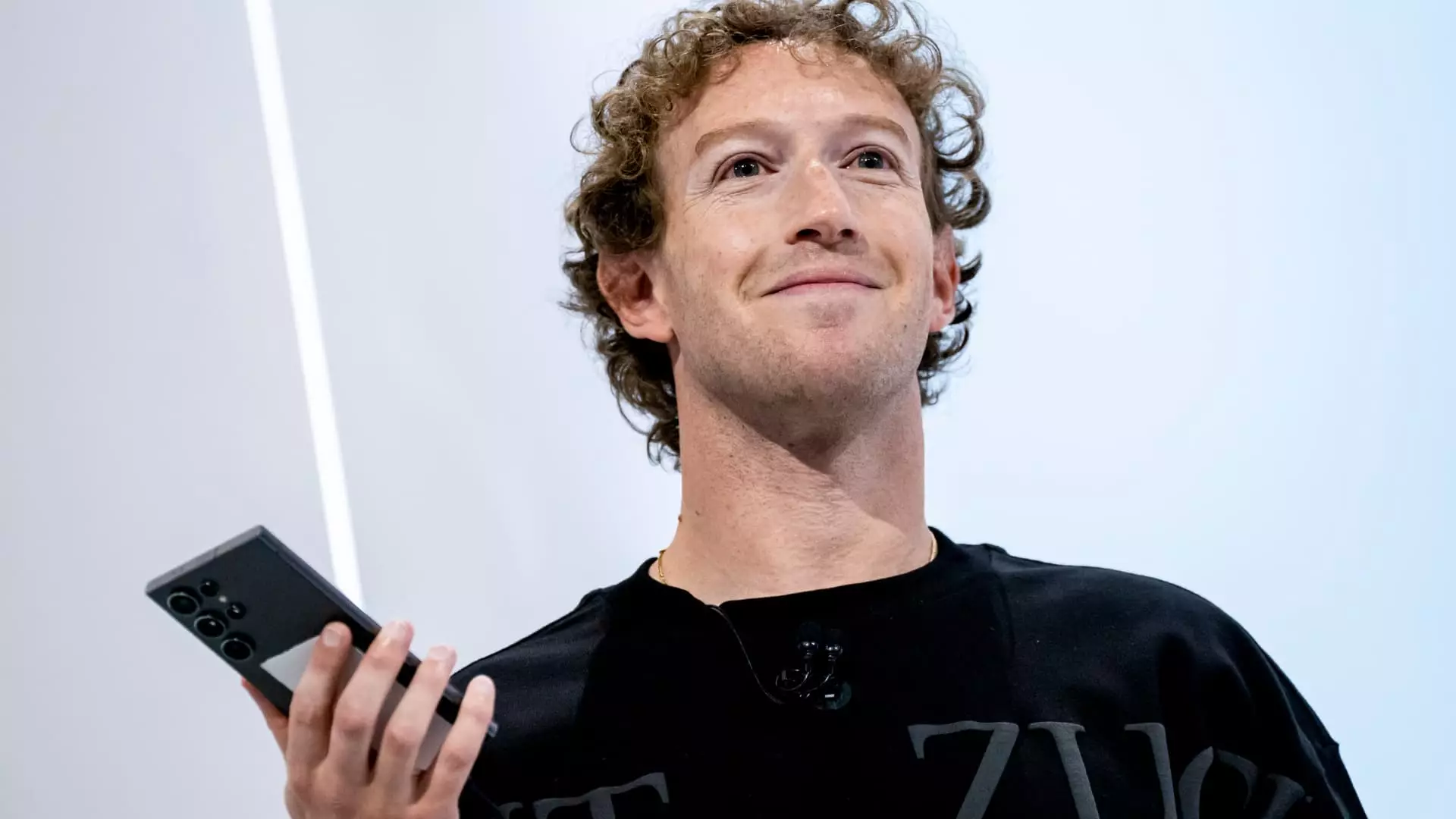In recent discussions, particularly on a podcast featuring Joe Rogan, Meta CEO Mark Zuckerberg made some incendiary claims regarding the Biden administration’s influence on content moderation concerning COVID-19 vaccines. As societal debates over vaccine efficacy and safety continue to evolve, Zuckerberg’s assertions warrant deeper scrutiny, especially given the implications for free speech and public trust in social media platforms.
Zuckerberg has positioned himself as an advocate for vaccine deployment, labeling the COVID-19 vaccination effort as generally beneficial. However, he articulated a concern that the administration adopted a heavy-handed approach, effectively censoring legitimate discourse around vaccine side effects. During the podcast, he revealed that Meta faced substantial pressure to remove content suggesting that vaccines might have negative side effects. This highlights a contentious intersection between public health advocacy and the rights to free expression in digital spaces.
The significance of such censorship extends beyond inflated fears around vaccines; it delves into the core of how information is disseminated and consumed online. Zuckerberg’s acknowledgment of the push from the administration to mitigate discussions around vaccine side effects raises pressing questions about the balance between preventing misinformation and ensuring openness for legitimate debate. This balancing act forms the crux of an ongoing struggle that platforms like Meta face, as they navigate regulatory pressures while attempting to maintain user trust.
Shifts in Misinformation Policies
While Zuckerberg’s remarks can certainly be interpreted as an admission of censorship, they also coincide with Meta’s recent policy changes regarding fact-checking. The company’s announcement to shift from traditional third-party fact-checking organizations to “community notes” — allowing users to comment on the accuracy of published information — suggests a significant pivot in its approach to misinformation. This transition aligns Meta more closely with approaches taken by platforms like X (formerly Twitter), which have embraced a more decentralized ethos toward moderation.
The implications of these shifts in policy are multifaceted. On one hand, this democratization of fact-checking could empower users to participate in the vetting of information, potentially enhancing engagement. Conversely, the lack of stringent vetting might lead to an increase in the dissemination of false information, eroding public confidence in information shared across social media platforms.
Zuckerberg’s podcast comments further revealed his apprehensions about the U.S. government’s approach to regulating the technology sector. By contrasting the treatment of American tech companies with the European Union’s rigorous fines, which have amassed to over $30 billion, Zuckerberg expressed worries that U.S. firms are inadequately safeguarded from regulatory overreach abroad. His comments seem to imply that governmental pressure is not only detrimental to free expression but also counterproductive in positioning American technology firms favorably on the global stage.
Moreover, Zuckerberg’s optimism about potential regulatory changes under an incoming administration reflects his strategic maneuvering in a complex landscape. He suggests that President Trump’s focus on American competitiveness could lead to more favorable conditions for tech companies. This outlook, however, raises questions about how partisan politics may shape technology regulations and the potential fallout for content moderation and information integrity.
Mark Zuckerberg’s insights into the interaction between the Biden administration and Meta illuminate a broader dialogue about freedom of expression, misinformation, and public health. As social media continues to play a pivotal role in shaping public discourse, it is crucial for platforms and regulators alike to strike a delicate balance between safeguarding public health and preserving avenues for open dialogue.
The road ahead requires thoughtful consideration of how content moderation policies can evolve without compromising the diversity of perspectives that enrich societal conversations. As both advocates and critics of vaccination remain vocal, the importance of fostering spaces where information can be freely articulated, scrutinized, and debated becomes increasingly paramount to bolstering public trust in health communications.

